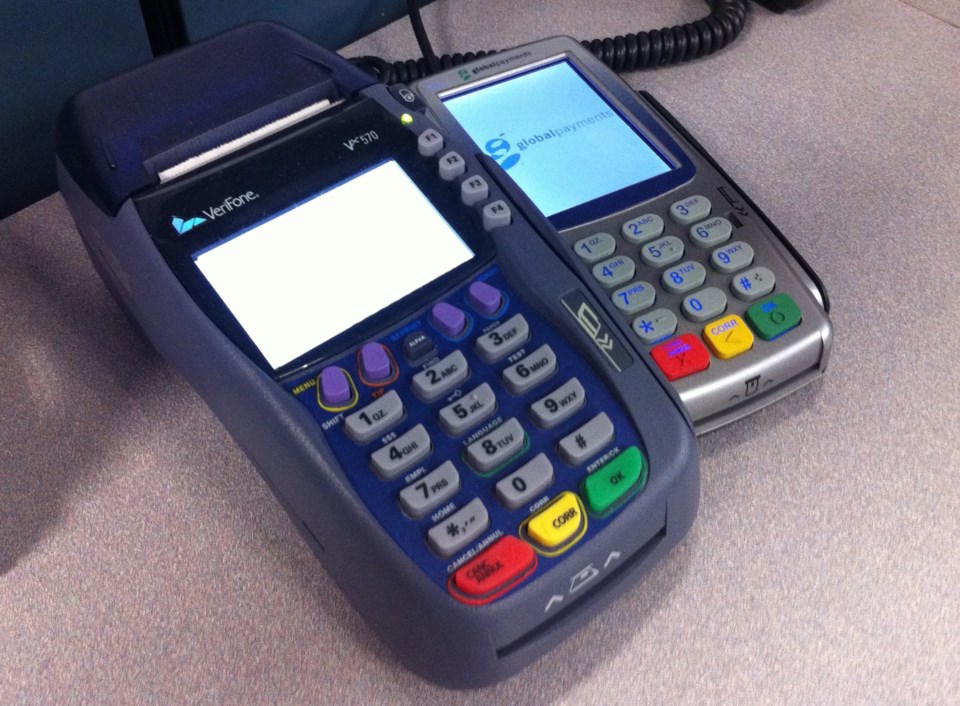Frank Abagnale, the former con man whose exploits were featured in the movie Catch Me If You Can, repeats this advice in speeches he gives in his job as a security consultant: Don’t use debit cards to buy things.
If your debit card is stolen, the money that subsequently disappears comes directly out of your bank account, he reminds people in his speeches. If you use a credit card, and it’s stolen, the lost money is the bank’s. Banks will have greater incentive to deal with a case if it involves their stolen money, instead of yours.
Also, if a fraudulent charge is on a credit card, you can challenge it and have it cancelled. There’s little to no impact on your finances. If it’s on a debit card, money disappears from your bank account, and it could take weeks to get the money back.
“Every time you take [a debit card] out of your pocket, you’re exposing” your money in your account, Abagnale told the Omaha World-Herald. “The safest thing is a credit card.”
Here's my take on the pros and cons.
Pros for debit cards:
You can only spend money that you already have, so you’re less apt to get into debt trouble.
Merchants prefer them. When a customer uses a debit card, the processing fee is typically lower than it is for a credit card.
You don’t have to go through credit history checks and report your income to get a debit card. You set up a bank account, put money in it, and you’re ready to go.
You don’t face credit card interest charges, which are hefty if you don’t fully pay off the balance before the due date every month.
Cons for debit cards:
Using a debit card exposes your entire bank account. Money for purchases comes directly out of your account immediately. If your card is stolen, there’s the potential for a fast-moving thief to take everything you have, especially if the card has the tap function enabled, which means a PIN isn’t required for smaller purchases.
Banks offer “zero liability” assurances if there’s fraud. But you still face an emptied account until your bank acknowledges that fraud has happened and agrees to reimburse you. That could take weeks, or months, leading to big problems with cash flow. With a credit card, a bank loans you the money for purchases. If there’s fraud, credit card charges are reversed, and your bank account is not affected.
If your account has overdraft protection, there’s the potential for more money to be drawn against the account than the actual balance.
There’s probably less fraud monitoring for debit cards. Banks have more incentive to keep an eye on what’s happening with credit cards because bank money is at stake, instead of your money.
Debit cards typically don’t have the rewards offered by credit cards, such as points toward travel.
[And this from a reader: If you don't have an unlimited withdrawals plan for your bank account, the more purchases you make with a debit card, the more withdrawals fees you'll have to pay.]
All this doesn’t mean that you should scrap your debit card. Some people don’t qualify for credit cards. Some people can’t be trusted with credit cards. Some people can’t abide debt.
In the modern banking age, a debit card is pretty much essential. It also serves as a bank card that allows you to withdraw money from automated tellers, and as an identity card when you do business at a bank branch.
So, it can be difficult to entirely dismiss a debit card from your financial life.
But you could take these steps to reduce debit card risk:
-- Ask your bank to turn off the debit or purchase function so that you won’t be able to buy things with it. Your card will be limited to making cash withdrawals at bank machines and to identifying you.
-- If you need to keep the purchase function active, set a low limit on how much can be withdrawn each day.
-- Set a low cash-machine withdrawal limit. Perhaps $100 a day and $300 a week.
Here's a discussion at Reddit about debit card risk.
And an article at CreditCards.com: Why debit is riskier than credit
A brief YouTube video where Frank Abagnale discusses credit vs. debit cards
Contact me at [email protected]
- - -
- - -
Most-popular posts:
What you could do if you miss the last ferry back to Victoria
How to ride Vancouver transit with a Compass card
Eight years of riding an electric-assist bicycle almost every day
Why newer dishwashers run for an alarmingly long time
Most credit cards charge 2.5% for currency conversion; a few charge 0%
Why paying $720 for a phone can be a better deal than a 2-year contract
Tips to make applying for a passport a little easier
What a credit report reveals, and how to get yours
Do you know your Gulf Islands? Here's help memorizing 14 (of 200)
How to line up at busy Greater Victoria restaurants
To stay cool, leave house windows closed or open?
How to block unwanted text messages
Why B.C. Hydro bills sting more on Vancouver Island
How to pronounce Ucluelet, Tsawwassen, and that outdoor gear place
How to travel between Victoria and Vancouver on public transit
- - -



